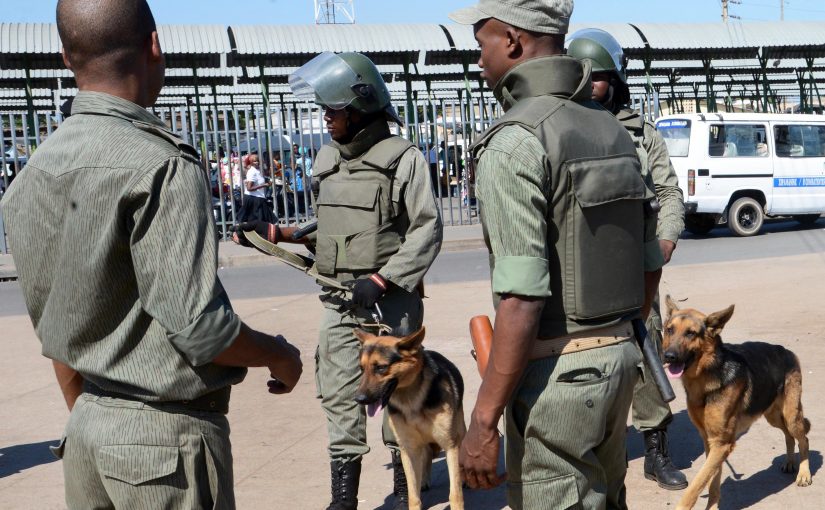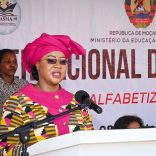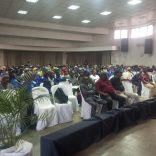Mozambique: Gueta Chapo says literacy remains a national priority
Frelimo supports the police, Renamo condemns

A file photo of Mozambican police agents. Picture: Lusa
For the second day running, the Mozambican Minister of Justice, Joaquim Verissimo, speaking at a question and answer session in the country’s parliament, the Assembly of the Republic, defended the behaviour of the police during the 10 October municipal elections.
Deputies from the main opposition party, the former rebel movement Renamo, accused the police of working for a victory of the ruling Frelimo Party, but Verissimo insisted that where the police had intervened, it was merely “to uphold law and order, and respect for the democratic rule of law”.
“The police force is non-political”, he said, to laughter from the Renamo benches.
He said that in certain cases the police were forced to intervene in polling areas because of illegal acts by Renamo supporters. This was the case in the northern city of Lichinga, for example, where the police intervened because a large number of people had gathered illegally at a polling station “to control the vote” (a tactic that had been encouraged by some Renamo leaders).
“This was to restore order”, insisted Verissimo. “Two members of the police were injured when stones were thrown at them from the crowd”.
Frelimo deputies repeatedly mentioned the incidents the day after the elections when the police intervened to rescue Renamo delegates who had been abducted and beaten by other Renamo members in the municipalities of Chimoio, Mocimboa da Praia and Montepuez, because they had supposedly “sold our votes” to Frelimo. Without the police intervention, they said, these unfortunate Renamo delegates might have been lynched.
A Frelimo deputy from the northern province of Niassa, Agostinho Cosme Manje, said that Renamo members had surrounded polling stations, threatening to burn the ballot papers, if the results were not in Renamo’s favour. “It was because the police intervened that this did not happen”, he declared.
Once again, Renamo deputies painted a conspiracy between the National Elections Commission (CNE), its executive body, the Electoral Administration Technical Secretariat (STAE), and the police to deny Renamo victory, and once again they failed to mention that Renamo appointees sit on all the elections commissions, up to and including the CNE, and are present at all levels of STAE.
Frelimo deputy Eduardo Galiza-Matos Junior pointed out that the electoral legislation was changed (in 2014) to accommodate all of Renamo’s complaints. The result has been the complete politicisation of the electoral bodies, with political appointees (from Frelimo, Renamo and the Mozambique Democratic Movement, MDM), at all levels of the CNE and STAE.
The Renamo deputies seemed quite unaware that the Renamo appointees on the CNE had accepted the results in all but five of the 53 municipalities (the five where there are serious indications of major irregularities or fraud are: Matola, Moatize, Marromeu, Monapo and Alto Molocue). But on Thursday, deputies alleged fraud in other towns, such as Ribaue and Maganja da Costa, where Renamo made no protests at the time.
As on Wednesday, Renamo alleged that Frelimo bussed in people from outside the municipal area to vote in particular towns and cities. Frelimo retorted that one prominent Renamo figure, Latifo Xarifo (the number two in the Renamo list of candidate for the city of Quelimane), had publicly boasted of bringing in people from outside Quelimane to vote in the elections.
All such claims or boasts, however, should be regarded with some scepticism, since nobody can vote without first registering. A party organising such a fraud would have to ferry its supporters into the municipality on two separate occasions, months apart, once to register and once to vote. Doing this with large numbers of people would be an expensive, logistically complex undertaking.












Leave a Reply
Be the First to Comment!
You must be logged in to post a comment.
You must be logged in to post a comment.